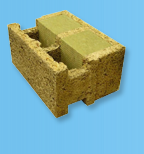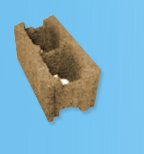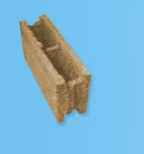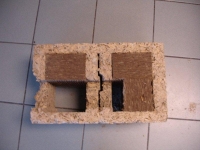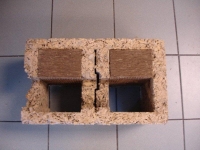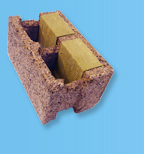
| Wall Forming Systems |
The Block wall forming is a premium quality construction material that’s recycled, renewable, and energy efficient. Trusted around the world for over 60 years, Durisol is the safe, reliable alternative to timber-frame construction. It can also save you up to 30% compared to the cost of traditional brick and block masonry.
|
Frequently Asked Questions about The Block wall Forming System’s Sustainable Construction Materials. The Block wall Forming System’s 80% recycled wood units are perfect for cost-effective eco friendly building. Here, you can find answers to some of the more common questions relating to the application of The Block wall Forming System.
Does The Block wall Forming System need a damp-proof course?
While a DPC (damp proof course) is not always necessary, UK building control division would always recommend that you have one to comply with Building Regulations within the UK. A DPC will prevent moisture rising through the poured concrete core and The Block wall Forming System would be unaffected.
Can you fill The Block Forming System with hemp?
Although in principle The Block wall Forming System units can be filled with any substance, we do specify concrete as this provides the structural strength of the construction, as well as thermal mass benefits. No other economical poured product has the strength of concrete.
Does The Block Forming System have cold bridging at the break in insulation?
Cold bridging does not occur as the insulation quality, R Value, provided by the width of the complete Woodcrete is similar to that of concrete and mineral wall insulation. A solid woodcrete unit 365mm wide would provide a U value of 0.22.
What is thermal mass and how does it work?
Thermal mass is the ability of a material to store heat (or cold). High thermal mass materials act as thermal sponges, absorbing and storing heat from the sun or heaters to release it at night. Yet, thermal mass is not a substitute for insulation as it generally stores and re-radiates heat. Insulation stops heat flowing into or out of the building. The right combination of these two elements, plus a building design that allows the capture of solar light and heat can improve the thermal performance of new buildings and lower energy requirements. The key benefit of The Block wall Forming System’s Sustainable Construction Materials is that the majority of the insulation is located on the exterior of the concrete core.
Can I lay The Block wall Forming System on top of existing brick and/or blockwork?
Although it is possible to build on top of existing bricks and blockwork with The Block wall Forming System, the issue of shuttering the bottom course of the The Block wall Forming System units and having the correct platform to work from would need close consideration. There also may be a need to take structural advice regarding the placement of rebar to the existing course. The key advantage of working with The Block wall Forming System is the option to work below and above ground construction, so starting from the foundations would minimise the number of building elements required and the need for other trades.
Can I leave The Block Forming System unfinished long term or do I need to cover it?
While The Block wall Forming System can be left unfinished it is recommended that an external finish is applied, both internally and externally. Although the Austrian factory has remained unfinished for over 50 years, it is not a habitable space and the issue of dust and dirt retention is not a consideration.
Does The Block Forming System allow water penetration?
The Block wall Forming System units are made from 80% recycled timber that is specially treated not to rot or burn and in addition, not to support capillary action. This means it is not possible for moisture to be ‘sucked’ through the construction although it may allow water through if forced under pressure. It is recommended that an external rain screen is provided and wet plaster or plasterboard attached directly to the walling units either by ‘dot & dab’ or by screwing directly into the unit.
Is The Block Forming System BBA Accredited?
The Block wall Forming System UK is BBA accredited, and you can view our BBA certificate here. The Block wall Forming System UK also has BM TRADA, and ETA accreditation giving a CE mark. In addition, we have confirmation of compliance from Zurich Insurance Group.
Do I need to use concrete for the infill with The Block Forming System?
As with hemp, The Block wall Forming System recommends that you do use concrete for the infill. This will ensure that you gain the full benefits of the The Block wall Forming System system, comply with the structural engineers and building control requirements, and do not compromise the structural integrity of the building.
Do I need to use rebar with The Block wall Forming System?
You will need to ensure that you use reinforcement over openings to form lintels unless preformed lintels are used. While many builds in the UK up to two-storeys have no other reinforcement, each project will vary in design and structural requirements, therefore consultation with a structural engineer is needed in each case.
How does The Block wall Forming System compare in cost against a brick finish?
The Block wall Forming System compares favourably against all construction methods, and a brick finish is no exception. As of 2009, the average cost within the UK to have a block and brick finish supplied and installed is between £90-£120m2. Meanwhile, the average costs to have the The Block Forming System system (depending on the unit required) supplied, installed, with concrete and labour included is between £60-£80m2, correct as of 2009.
The cost of material and labour aside, the The Block wall Forming System system is also up to three times faster to build and is not dependant on the weather elements. Therefore, The Block wall Forming System can offer major cost savings by speeding up build and reducing the contract period..
